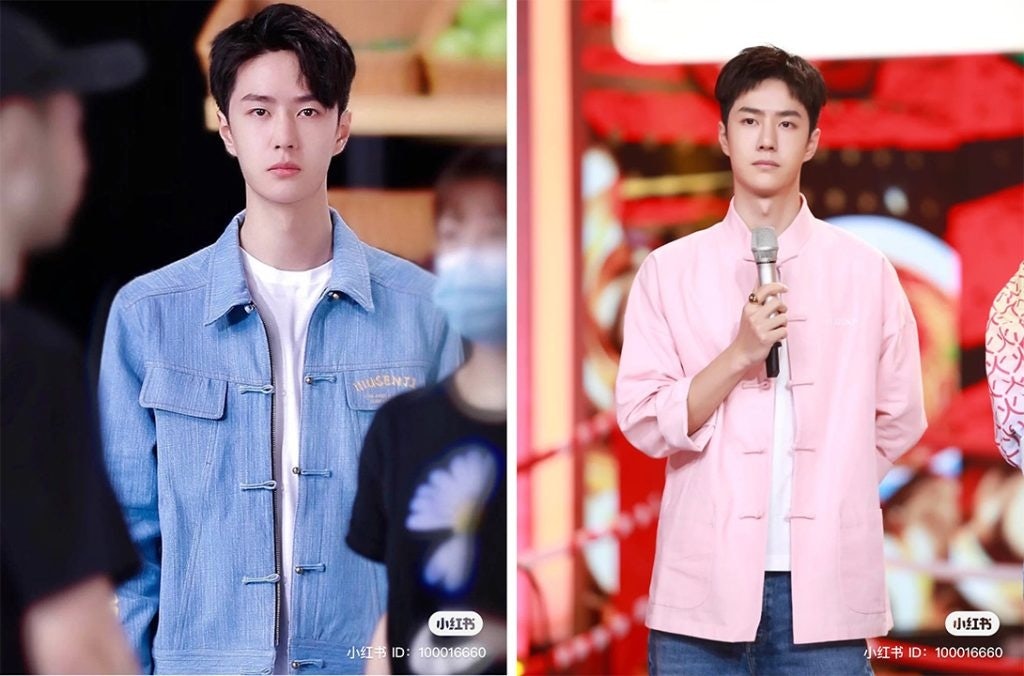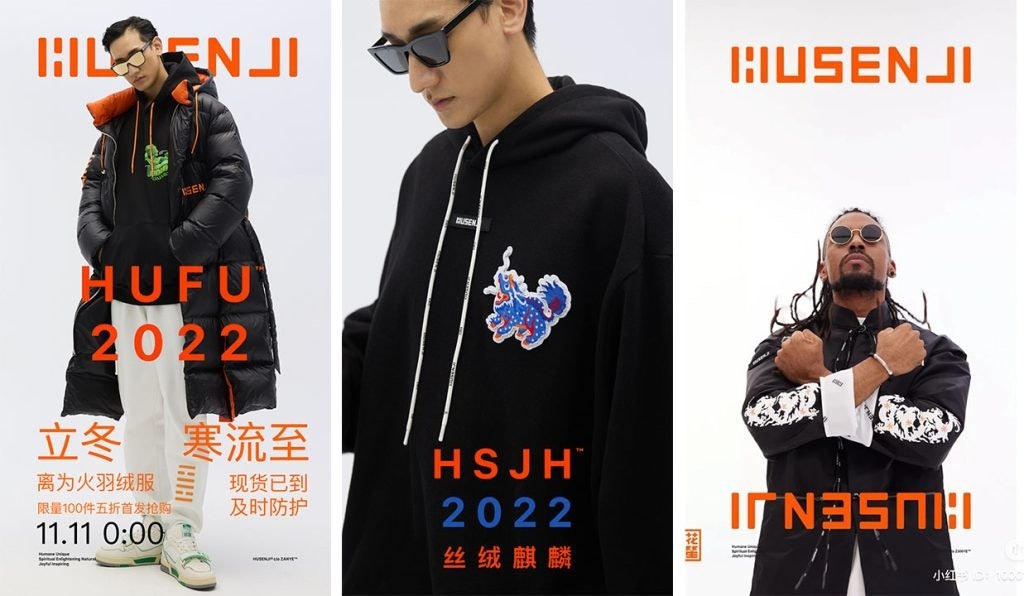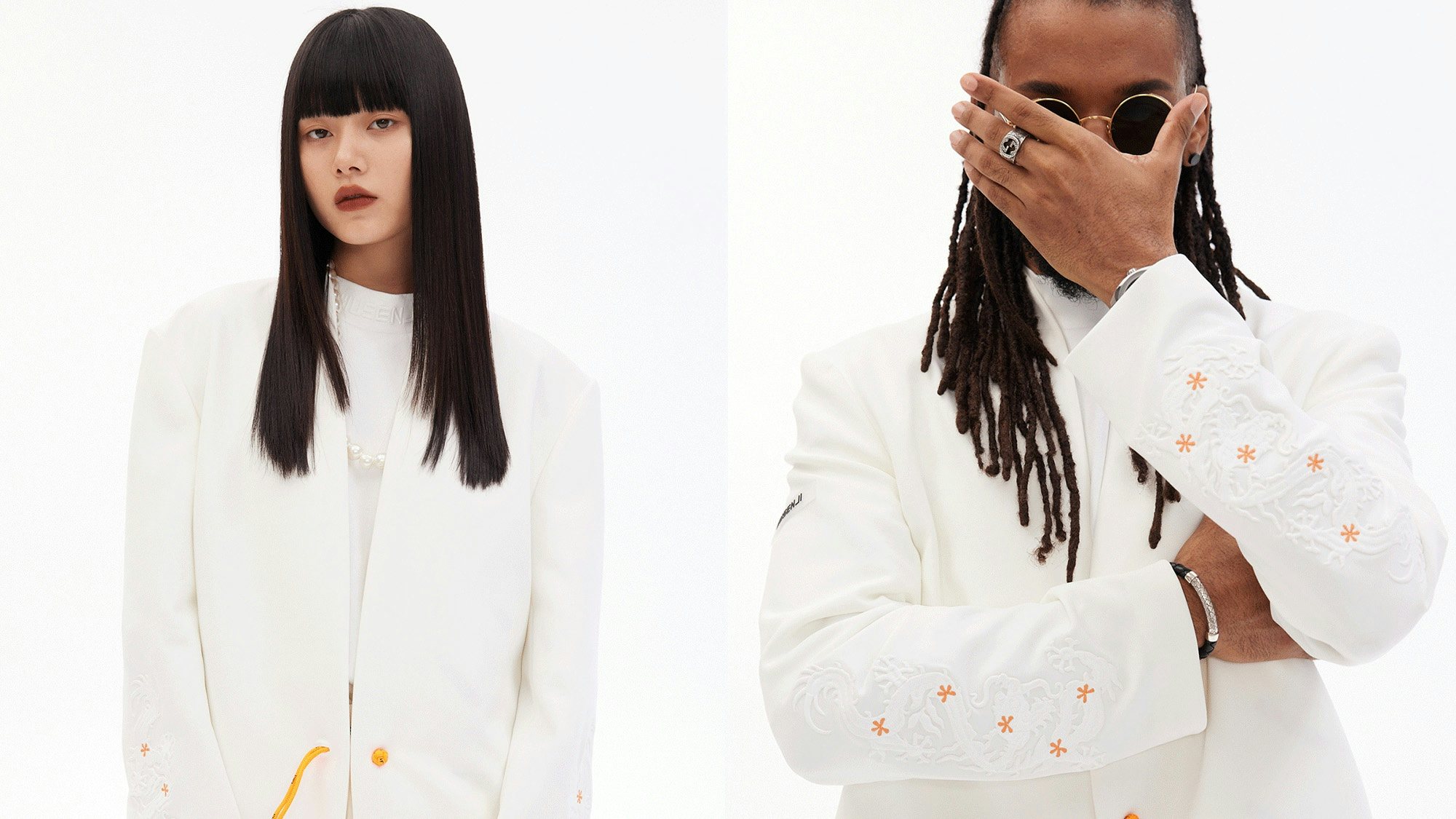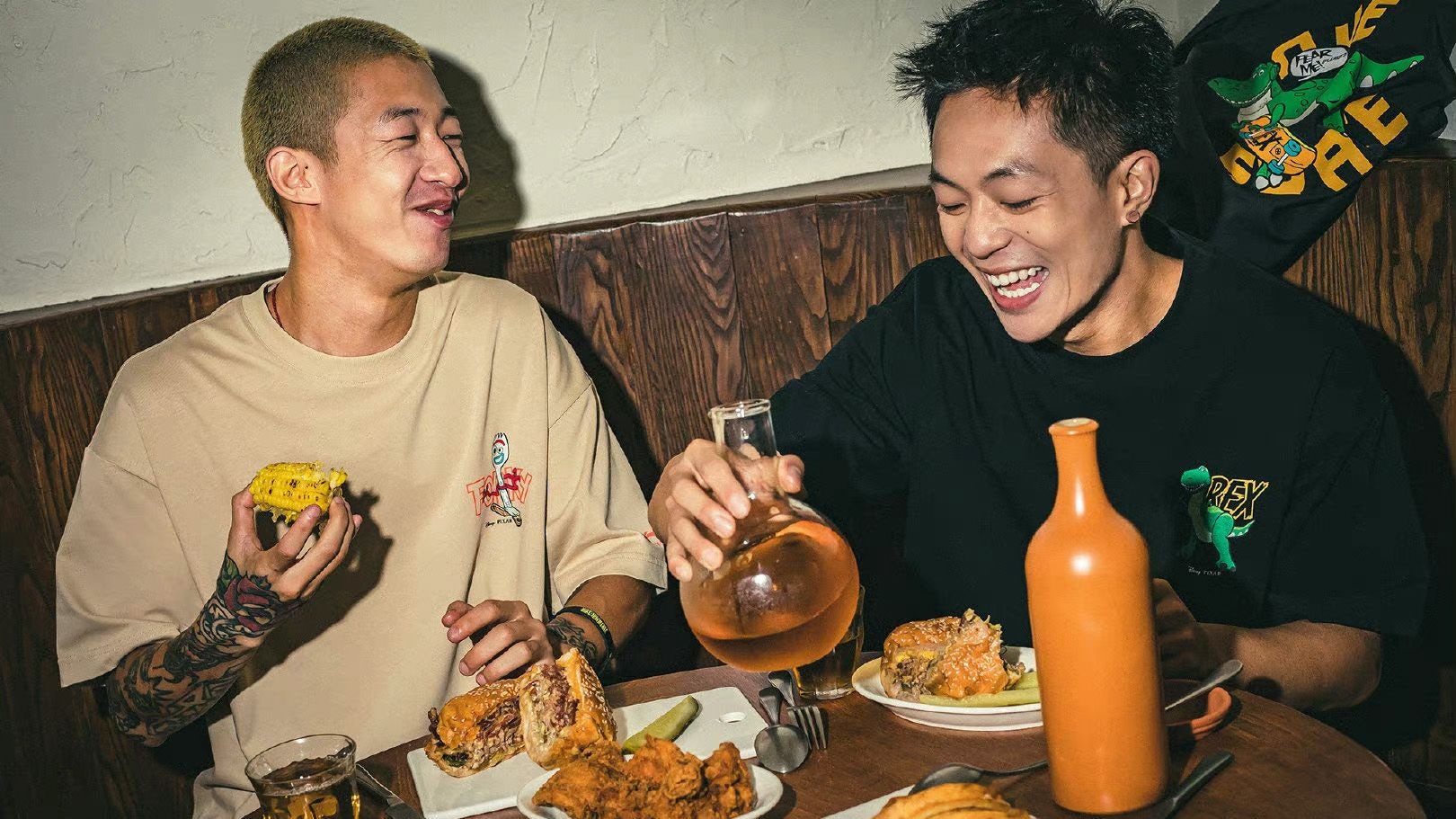What happened
While some brands welcomed a fresh start in 2023, others bid farewell to their business. On December 31, Chinese menswear brand Husenji, also known as Huashengji 花笙记, held a final clearance sale after announcing that it would be ending operations. Before its closure, the Shanghai-based label counted 735,000 followers on Tmall and was sported by famous figures including Alibaba Group founder Jack Ma, Wang Yibo, and the contestants of the reality TV show Sisters Who Make Waves.
Founded in 2008, Husenji was known for incorporating traditional Chinese fashion elements into modern wardrobes. This was best captured by its embroidered Tang suits (a Chinese jacket characterized by a mandarin collar and frog buttons), which retailed for as much as 570 (4,000 RMB) on Taobao. To make its Tang suits more practical for everyday wear, Husenji adopted a slimmer fit, used a variety of materials including denim and lamb wool, and accessorized them with bold prints.

The Jing Take
Weighed down by macroeconomic headwinds and weak consumer demand, global brands have scaled down their business in mainland China — or pulled out entirely. But even Husenji, a homegrown player bursting with Hanfu charm, was not able to keep afloat. As the brand wrote on WeChat, “Now we understand that some things should stop at the place where youth stops and that some things should stay in the past.”
The 14-year-old brand was a leader in the “national wave” or China chic trend, particularly among those born in the ‘80s and ‘90s. In fact, from 2008 to 2018, its annual sales growth exceeded 300 percent and its annual sales surpassed 14 million (100 million RMB), according to local media. But since then, sales have slowed — to the point where in 2020, the brand briefly entered a dormant period whereby no new products were released.
Husenji’s shift in positioning from mid-end to high-end could have dissuaded former fans, who had grown accustomed to price tags in the three-figure ballpark (its HUFU 2022 down jacket, for example, retailed for 10,000 RMB before the recent clearance sale). On top of this, the domestic player failed to court younger Gen Z shoppers. And by sticking largely to Taobao and Tmall, it neglected to build a strong presence on social media like Xiaohongshu and Douyin, amassing just a thousand followers between the two platforms. Savvier new brands jumping on the Guochao trend, as well as fierce competition from other Taobao stores, meant that consumers also had a host of cheaper, stylish alternatives.

At the same time, Husenji’s closure reiterates China’s weak consumer demand. Retail sales fell by 5.9 percent in November from a year ago, missing expectations of a 3.7 percent decline, while the unemployment rate among young people ages 16 to 24 came to a staggering 17.1 percent. Although China finally ended its COVID-19 quarantine requirements, it could be a while before the broader retail industry reaps the benefits, particularly as a new wave of infections sweeps through the nation and keeps people indoors.
Although not a luxury name, Husenji’s end should serve as a warning: Brands leading the trends today could be gone tomorrow. Even those who seem to have all the boxes ticked must strike a balance between maintaining their core fanbase and creating connections with new, younger consumers. With retail competition and economic tensions at a high, the pressure is on.
The Jing Take reports on a piece of the leading news and presents our editorial team’s analysis of the key implications for the luxury industry. In the recurring column, we analyze everything from product drops and mergers to heated debate sprouting on Chinese social media.


